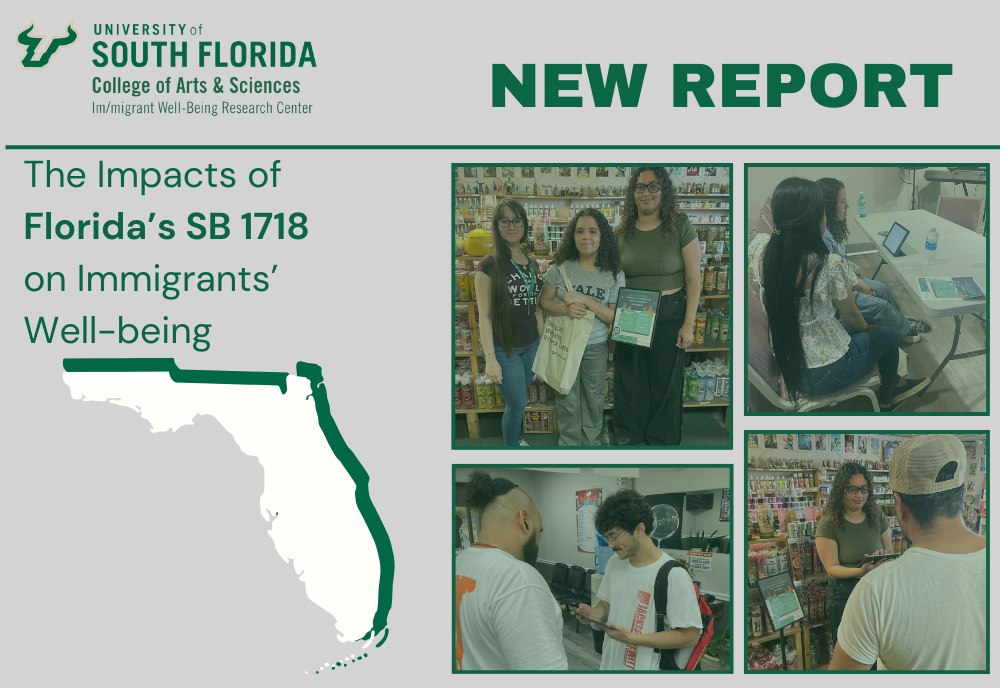A recent study from the Im/migrant Well-Being Research Center at the University of South Florida sheds light on the broad and significant effects of Florida’s Senate Bill 1718 (SB 1718) on immigrant well-being. Conducted between May and July 2024, this research surveyed 466 immigrants and U.S.-born adult children of immigrants to understand the social, economic, and psychological impacts of the law. Findings indicate that SB 1718 has exacerbated issues such as job insecurity, financial strain, and barriers to healthcare access, while also intensifying psychological distress across immigrant communities. Importantly, the report highlights the spillover effects—effects that go beyond the intended targets of the law—felt by U.S. citizen adult children of immigrants, who report increased anxiety and uncertainty.
SB 1718 and its Broader Social and Economic Consequences
SB 1718’s reach goes beyond immigration, affecting Florida’s economic stability and
social fabric, as shown by the survey’s findings. With 79% of respondents perceiving
life as more difficult since the law’s enactment, concerns about family separation,
restricted access to essential services such as healthcare, and growing job instability
have led to over half of non-citizen respondents to consider relocating out of state,
in addition to nearly a quarter of U.S. citizens surveyed. These insights, gathered
with the support of non-profit and local community partners, emphasize the critical
need for policy discussions that address both immediate and long-term implications
of the law for Florida’s residents.
For more details, view the full report here.
